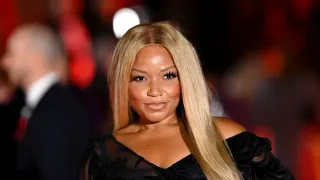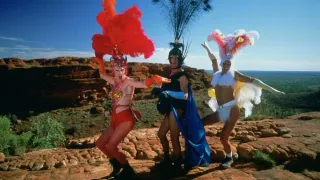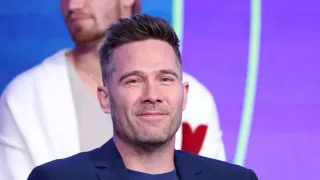
3 hours ago
JADE Thirlwall Calls Out Privileged Pop Stars for Political Apathy, Names Matty Healy
READ TIME: 3 MIN.
JADE Thirlwall, widely known for her outspoken support of LGBTQ+ rights and social justice, has ignited a conversation within the music industry by calling out pop stars who choose to remain politically neutral during times of global unrest. In a recent interview with *The Guardian*, Thirlwall specifically addressed Matty Healy, frontman of The 1975, critiquing his decision to shift the band’s public stance away from politics. Thirlwall’s comments have resonated deeply with LGBTQ+ audiences and activists, who often look to public figures for visibility and advocacy .
The spark for Thirlwall’s critique came after Matty Healy’s headline performance at Glastonbury in June. Healy announced that The 1975 was deliberately steering clear of political messaging, telling fans, “We don’t want our legacy to be one of politics. We want it to be one of love and friendship” . This statement marked a departure from Healy’s previous activism; in 2023, he had publicly criticized Malaysia’s anti-LGBT laws and was subsequently banned from the country after kissing a bandmate on stage in protest .
Healy’s stance drew mixed reactions. While some fans applauded the focus on unity, others expressed disappointment at what they saw as a retreat from issues affecting marginalized groups, particularly in light of Healy’s earlier willingness to challenge anti-LGBTQ+ policies on a global stage .
Thirlwall’s response was pointed: “I don’t think you can be a pop artist and cover your eyes,” she said. “I saw Matty Healy say that he doesn’t want to be political, which I found disappointing. It’s very easy for someone who’s white and straight and very privileged to say that. Good for you, hun!” .
Her critique centers on the notion that celebrity status comes with a responsibility to leverage visibility for social change, especially when artists benefit from privilege and access. Throughout her career, Thirlwall has used her own platform to protest welfare cuts, government silencing of dissent, arms sales, and, notably, to advocate for LGBTQ+ rights and Palestinian freedom .
Thirlwall’s activism is rooted in personal experience. Growing up in South Shields, she and her mother faced frequent racist microaggressions, which shaped her understanding of intersectional struggles and the importance of solidarity among marginalized communities. The Black Lives Matter protests in 2020 were a catalyst for Thirlwall to more actively confront and address systemic injustice, both personally and publicly .
Thirlwall’s comments have been welcomed by LGBTQ+ advocates, who regularly emphasize the importance of celebrity allyship in advancing rights and representation. In a political climate where anti-LGBTQ+ legislation and rhetoric continue to threaten community safety worldwide, visible support from high-profile artists can play a crucial role in fighting prejudice and promoting inclusion .
Activists argue that neutrality from influential figures, especially those with privileged backgrounds, risks perpetuating harmful systems by failing to challenge them. Thirlwall’s stance is seen as a call for greater accountability and courage among artists who have the means to amplify marginalized voices.
As Thirlwall prepares to release her debut solo album, *That’s Showbiz Baby*, on September 12, her commitment to activism remains a defining aspect of her artistry. Fans and critics alike are watching to see how her political engagement and outspoken advocacy will shape not only her own legacy, but also influence broader conversations about the role of popular culture in social justice .
JADE Thirlwall’s challenge to Matty Healy and other pop stars underscores a growing debate within entertainment: Should celebrities use their platforms for political change, or is there value in remaining neutral? For many in the LGBTQ+ community, visibility and advocacy are not optional but essential. As the music industry continues to grapple with these questions, Thirlwall’s voice stands out as a reminder that privilege comes with responsibility—and silence, too, can be a political act .






